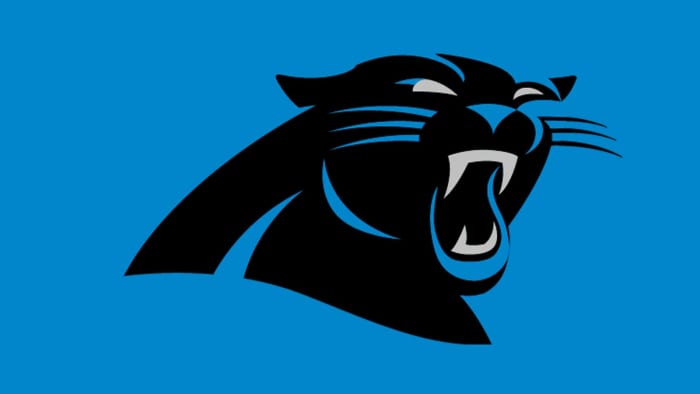Vince Lombardi was onto something.
Everyone knows Lombardi was fond of saying, "Winning isn't everything; it's the only thing." What no one knows for sure is if Lombardi was thinking about the next NFL Draft when he said it.
Lombardi was the first to experience winning a Super Bowl as head coach of the Green Bay Packers and then having to turn around and prepare the draft, having less time than every other NFL team to do so. (The team the Packers defeated in that first Super Bowl, the Kansas City Chiefs, was in the AFL at the time and had a totally different draft for which to prepare).
So it can be assumed Lombardi was among the first to experience the Catch-22 phenomena of balancing the need to win the biggest game of his life with the necessity to prepare for the next season. It's something to which former Carolina general managers Marty Hurney and Bill Polian can relate.
Hurney never was on the winning side in a Super Bowl, but he was the general manager of the Panthers prior to the 2004 draft after they lost to the New England Patriots in Super Bowl XXXVIII. Polian was the general manager of the Buffalo Bills when they went to and lost three consecutive Super Bowls and then was the general manager and president of the Indianapolis Colts when they won one Super Bowl and lost another.

After making the playoffs in 2003, the Panthers selected cornerback Chris Gamble 28th overall in the 2004 NFL Draft. Following a playoff appearance in 2013, Carolina chose wide receiver Kelvin Benjamin 28th overall in the 2014 NFL Draft.
Hurney, a former sports writer, was introduced to the personnel side of the business by Bobby Beathard, a long-time NFL general manager who participated in seven Super Bowls with four different teams, winning four of them.
"I always remember the story about Bobby, who was the reason I was in the league," Hurney said. "His wife always told the story of the '82 Super Bowl when the Redskins beat the Dolphins (and Beathard was Washington's general manager). She talked about the day they were at the Super Bowl party and Bobby was all worried, talking about how far behind they were and how much work they had to do to catch up to get ready for the draft and the next year. You can't do that job if you don't have that attitude.
"Accomplishments are great. I can only imagine what the night of winning the Super Bowl would be like, because I never got to experience that (as a general manager). But you're always worried about what's ahead, because that's really what matters most - the next pick, the next personnel decision, the next game."
In other words, winning is great. But for general managers and personnel men, the joy gleaned from it is fleeting.
In some ways, that's especially true for Super Bowl participants. As the playoff wins pile up, the anxiety sometimes rises about falling behind for the future.
"You fight and prepare and make sure it doesn't happen," Polian said about possibly falling behind in preparations for the next draft the farther you advance into the playoffs. "I obviously had experience with it in Buffalo and again in Indianapolis. Every time you go, you get a little better at it.
"I felt like the years we were in Buffalo, it was never a problem. But the draft was a different animal then. There wasn't quite the amount of information that we try to digest now, nor were pro days, necessarily, for major prospects. Now it's a little more complicated. There's much more information out there; the stakes are higher. There are more people involved, so it's much more difficult to stay on top of the process."
Polian said the biggest fear is that teams who are not in the playoffs can devote more time to evaluating draft prospects.
"The thing you miss when you're in the (conference) championship game or the Super Bowl is the Senior Bowl and the all-star games that you would normally be at, which are valuable in terms of trying to see the players up close and personal in a setting where they are competing with their peers at the highest level," Polian said.
Hurney said when your team reaches the Super Bowl, it's pretty much an all-consuming event. Then, he added, it's so heartbreaking when you lose that to delve right into attempting to catch up on draft preparations is difficult.
"Any time you get to the Super Bowl, your energies for the two weeks leading up to the game are so focused on just taking care of all the arrangements - the hotels, the tickets, just all the operational stuff that goes into preparing for that game and trying to make sure you take away as many distractions from your players as possible to give them the best chance to win that game. You do get behind," Hurney said. "It's draining energy-wise and certainly emotionally, after you lose a game like that.
"But you've got to pick yourself up and move forward. I do think it's hard for the team that loses the Super Bowl to do that, because it rips your heart out. It really does."
Polian said general managers and personnel men have no choice. Even when they are at what very well may be the pinnacle of their career success, they absolutely must be thinking about what's next. And these days, that's the free agency signing period and then the draft, both of which come upon Super Bowl participants like a defensive end chasing down a quarterback after the offensive line let him down.
"That's what general managers do. I know (current Panthers general manager) Dave (Gettleman) and I are the very same in our approach," Polian said. "Let's say the draft is at the end of April, like it is this year. Well, at the start of May you start taking a look at next year.
"You start to put together your itinerary for where you need to go and which players you need to look at. You get together with the personnel director to make sure you're going to see all the top guys during the course of the next season. It really never ends, and you're always thinking ahead - and that's your job."














